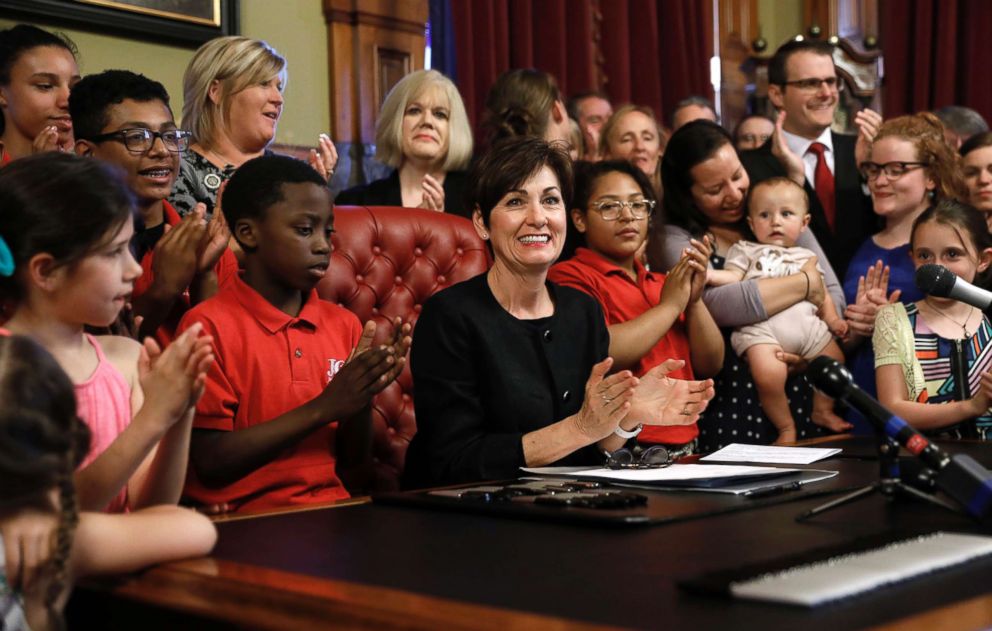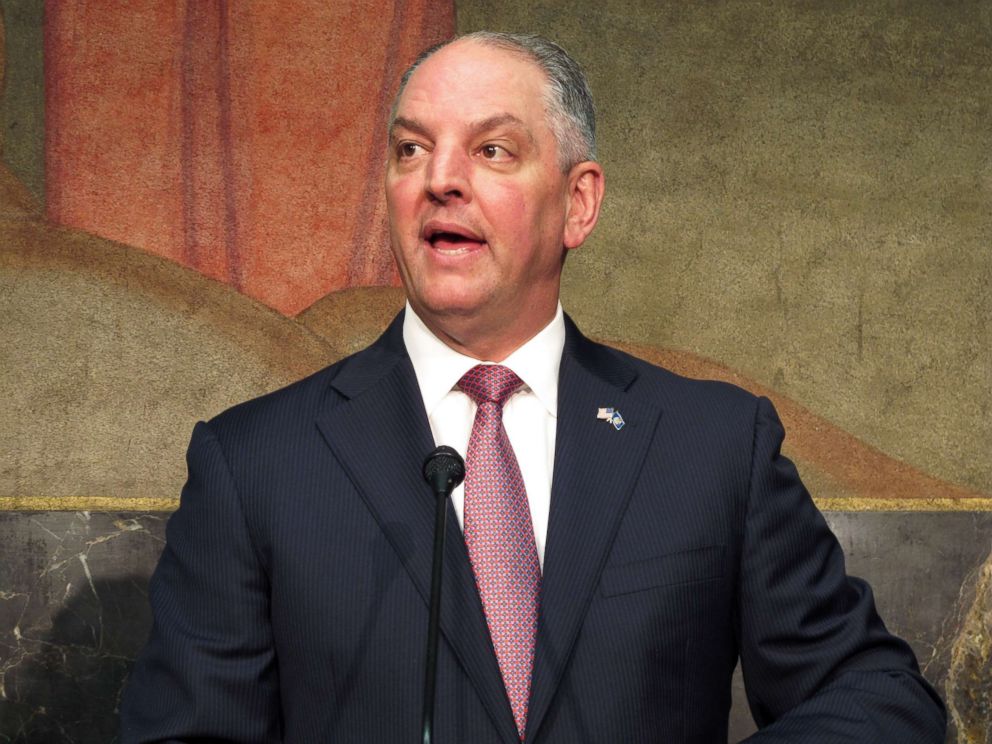Iowa AG refuses to defend 'heartbeat' abortion law
Comes as Louisiana moves forward in passing law banning abortion after 15 weeks.
Two of the most restrictive state abortion laws in the country could go into effect soon.
In Iowa, the state's attorney general is taking a stand against the recently signed the so-called “heartbeat ban” law, outlawing abortions after a fetal heartbeat is detected, which could be as early as six weeks into a pregnancy.
In Louisiana, a 15-week abortion ban has passed through both legislative houses and is headed this week to the desk of Governor John Bel Edwards, who is expected to sign it.
Legal drama in Iowa
In a letter to the secretary of Iowa’s Executive Council, the state solicitor general informed the council that state Attorney General Tom Miller had "disqualified himself" from representing Iowa in a lawsuit against the implementation of the so-called "heartbeat" ban.
"The disqualification is based on the Attorney General's determination that he could not zealously assert the state's position because of his core belief that the statute, if upheld, would undermine rights and protections for women," Solicitor General Jeffrey Thompson wrote.
The law passed by Iowa’s legislature and signed by Republican Gov. Kim Reynolds prevents any woman -- even in cases of rape and incest -- from having an abortion after a fetal heartbeat has been detected.

That can happen as early as six weeks into a pregnancy, at a time when some women may not even know they are pregnant.
The solicitor general's letter notes that the state's position will be represented pro-bono by the Chicago-based conservative pro-life law firm the Thomas More Society.
Martin Cannon, the special counsel for the Thomas More Society, said in a statement released to ABC News that Miller's decision was based on "his personal beliefs."
"Since the Thomas More Society’s mission is to protect women and children from the devastating consequences of abortion, when there is a choice between life and death, the Thomas More Society is honored to be called upon to defend life," Cannon said in the statement.
Miller’s decision to recuse himself was hailed by the non-profit reproductive health care organization Planned Parenthood, with executive vice president Dawn Laguens commending Miller "for standing up for a woman’s right to control her own body, and decide for herself whether and when to become a parent."
Related Stories
"Not only is this ban blatantly unconstitutional, it’s also extremely harmful to women,” Laguens said in a statement Tuesday.
“We have to keep fighting to make sure everyone gets the health care they want and need, including access to safe, legal abortion," she said.
Next steps in Louisiana
Louisiana legislators are moving forward in their effort to pass a law banning abortions in the state after 15 weeks into the pregnancy.
The bill has been passed both houses of the Louisiana legislature, according to local newspaper The Advocate. It will now go back to the state senate to reconcile some amendments to the bill from the original version, before being sent to Edwards.

Edwards, a Democrat, is waiting to read over the final language of the bill, but has said he is "inclined" to sign a 15-week abortion bill into law, according to a spokesperson.
The Louisiana bill is similar to a 15-week abortion ban that was passed in Mississippi in March.
Prior to the passage of the Iowa “heartbeat” abortion ban law, Mississippi’s 15-week limit was among the most restrictive in the country.




